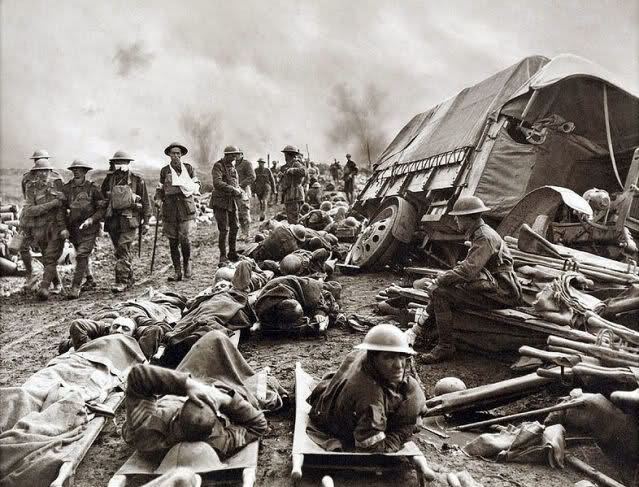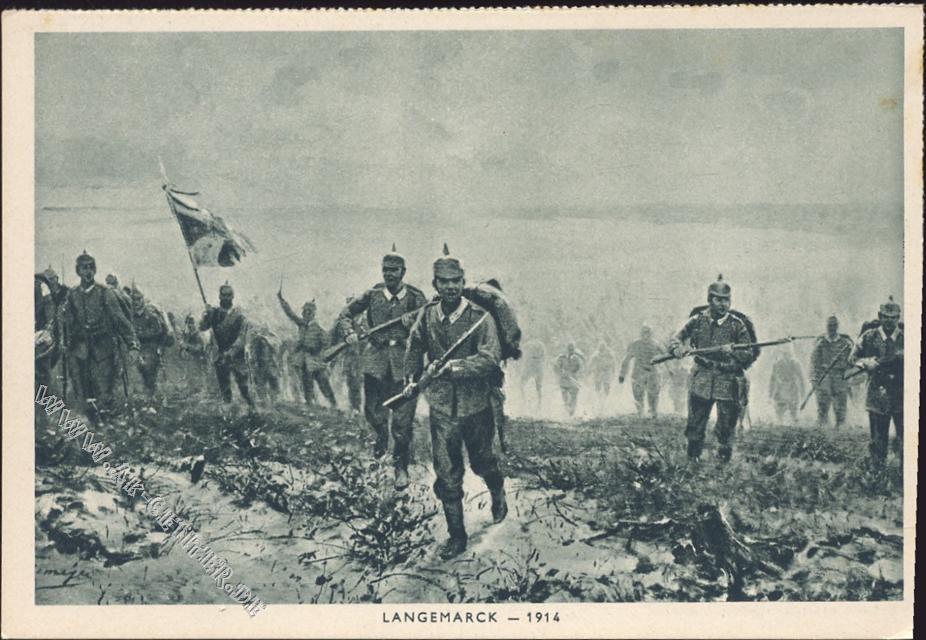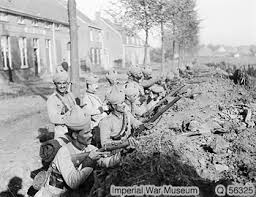Tales of Woeful Incompetence; Confusing Idiocy with Courage.
Special to The Great War Project
(22-23 October) Fighting continues at the Belgian city of Ypres – savage fighting.
Observes historian Martin Gilbert, “the line of trenches was beginning to acquire a fatal, static logic of its own.”
Historian Max Hastings reports the British troops have to establish their positions under a “storm of incoming bullets and shells.”
Hastings is merciless about the behavior of some British officers. “They confused idiocy with courage,” he writes, singling out Lt. Col. Walter Loring, who led his battalion at Ypres “on an enormous white horse.” He takes a bullet in the foot, has the wound treated, then gets back on the horse, which is soon killed.
Loring mounts a second horse and that one is killed as well. Loring himself dies a day later. Hastings writes: “He was the first of three brothers to die in the opening year of the conflict.”
The British front lines at villages outside Ypres receive orders to dig in. “With what?” soldiers ask. According to Hastings, “many had lost or rashly discarded their entrenching tools and none had heavy spades.”
“They scraped as best they could, some with bare hands.”
The battle at Ypres comes in the aftermath of the fighting at the river Aisne, where British and German troops are sunk in a muddy stalemate. British troops arrive at Ypres from the Aisne, and as they take positions on the front lines, they are hit with a powerful German offensive. The Germans “were soon attacking by night as well as by day on an ever broader front,” reports Hastings.
The Germans are losing plenty of troops themselves. German officers are frustrated by the terrain. “The entire countryside here is one mass of small enclosed fields and hedges reinforced with wire,” he writes. “How are we meant to attack through that? The enemy exploits its potential skillfully, firing from inside houses and trenches which they have dug extremely rapidly.”
Another German soldier, who sees action at the Belgian village of Langemarck, north of Ypres, describes the fighting this way: “Quite suddenly bursts of shrapnel spread death and destruction on our positions. What I saw and experienced was among the sort of images that the wildest imagination can dream up. What was left of our division? In every piece of meadow, behind every hedge, were bands of men, some large, some small, but what were they doing? What could they do?”
Some of the fighting here is hand-to-hand. On this October 23rd in this place a century ago, 1500 German bodies are counted, reports historian Gilbert.
Hastings calls the German attacks on these days around Ypres exercises in futility. One German officer writes:
“It seemed that nobody was meant to quit this place alive.”
Another German soldier writes in a letter home: “This sort of war is so unspeakably miserable.”
The British troops are doing so much fighting, their clothing is in tatters.
And on these days a century ago, the British deploy two divisions of troops from India, truly an unusual sight among the European soldiers enduring the horrors of Ypres.



